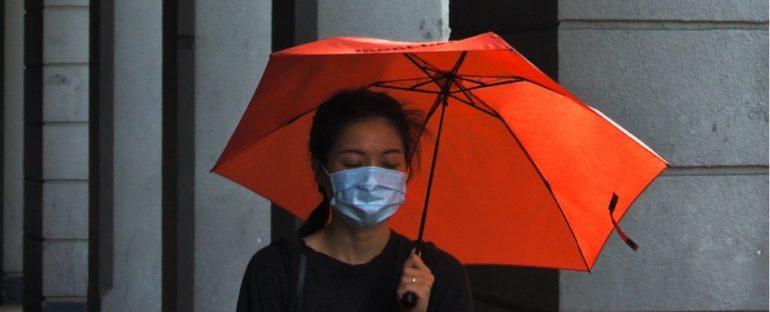In recent months, masks have become a highly polarising topic. Despite intense debates online, and the sometimes violent conflicts that erupt in public about mask requirements, the science behind mask-wearing is not at all controversial.
There’s extensive evidence to support wearing a mask to protect both yourself and other people, and help slow the spread of the coronavirus.
Here are some of the most common myths used to argue against mask-wearing, and why they’re wrong.
Wearing a mask won’t worsen a coronavirus infection
Myth: If I have the virus, wearing a mask means I’ll be re-exposed to viral particles I exhale, making me sicker.
Fact: This claim was circulated in the pseudoscience documentary Plandemic, which has been thoroughly debunked by scientists.
You can’t reinfect yourself if you already have the virus, and it’s impossible for it to somehow “reactivate” in your body, research has shown.
“There is no science behind it, and it’s totally false,” microbiologist Dr. Miryam Wahrman, author of The Hand Book: Surviving in a Germ-filled World, previously told Business Insider about this claim.
More and more evidence suggests that once your body mounts an immune response to COVID-19, it’s protected – for some time – from reinfection.
Masks don’t reduce your oxygen levels
Myth: I can’t breathe in a mask. It might be dangerous to wear one because it could limit my oxygen levels.
Fact: Masks have consistently been shown to be safe, which is why they were already used heavily by medical personnel even before the pandemic. The common rumour that they reduce the oxygen saturation level of your blood has been debunked by multiple medical doctors.
Furthermore,…



